Editor's note: Vietnam Weekly briefly records the opinions of CMC Chairman Nguyen Trung Chinh regarding Resolution 68.
“I believe that most of the long-standing bottlenecks will be removed.”
Resolution 68 has clearly defined the central role of the private economy , considering private enterprises as “soldiers” on the economic front. This is a strong step forward in development thinking. In a context where private enterprises were previously viewed with caution, today’s frankness is very welcome.
If we fully implement the contents of the Resolution, I believe that most of the long-standing bottlenecks will be resolved. We will have a new momentum, a new spirit of development - from the Party, from the State and from the business community itself.
However, I would also like to share the fact that institutionalizing the entire spirit of the Resolution will take time. Institutions cannot be completed in just one or two days. However, there are still many core contents that can be resolved immediately and that is the point to focus on.
I hope that businessmen will take the time to carefully study the Resolution, understand its spirit, and proactively contribute their opinions and accompany the Government in the coming period. More importantly, after the Resolution has been issued, we should not waste time discussing "should be this or should be that", but should focus on how to implement it most effectively.
Mr. Nguyen Trung Chinh: Businesses and people are no longer passive subjects, but must become the subjects creating change. Photo: President Club
Implementation is not only the responsibility of the Party or the Government. Researchers, businesses and social organizations can all participate and make practical contributions to this process. For example, right from the stage of drafting the Resolution to submit to the National Assembly, we can completely participate in giving opinions and in fact, the draft is always publicly consulted. Do not miss this stage. The stage of drafting laws and issuing decrees guiding implementation is the key moment.
The Party's Resolution is a major orientation, but to be implemented, it needs to be passed through laws and policies of the National Assembly, and enforced through legal documents issued by the Government. These documents are the factors that directly impact businesses and people.
Therefore, my team and I are making every effort in terms of time and resources to closely follow this process. We also look forward to gathering more intelligence and companionship from many people to contribute to the construction of specific, feasible and practically effective implementation policies.
Promoting digitalization, openness and transparency
I share some updates regarding digital transformation and the role of Resolution 68 in promoting transparency in the national governance system.
In the national digital transformation strategy, one of the key tasks is to comprehensively digitally transform all sectors, agencies and state organizations with the goal of enhancing publicity and transparency. All are promoted to operate in a digital environment, at four levels, aiming for a digitalization rate of 99%.
The digitalization of the entire process, data and information is not only a technical goal, but also a fundamental tool to ensure transparency in governance, thereby gradually limiting the “ask-give” mechanism, building trust for businesses and people. This is also the consistent spirit of the National Digital Transformation Program that the Government has implemented in recent years.
For the first time in Resolution 68, the key issues that the business community is concerned about have been fully recorded. This is of great significance. From here, we have a “measure” to compare between the issued policies and the actual implementation.
Thanks to technology, the review and analysis of current legal documents in the spirit of Resolution 68 can be completely done by machines. Artificial intelligence (AI) can detect contradictions, overlaps, duplications or omissions, and even clearly assess the scope and level of impact.
From a technology perspective and a practical approach, the spirit of the technology team is very proactive, ready to participate directly in the implementation process. We determined: If previously it was just at the level of proposals or general comments, now is the time to get down to business.
In that spirit, I would like to represent the technology business sector, taking responsibility for gathering all the problems and shortcomings related to current legal regulations that businesses in all industries are facing, whether in the field of fintech, finance or any other industry. We hope that businesses will take note and fully reflect on the problems that are hindering innovation, creativity and development.
I pledge that all contributions will be compiled, classified and analyzed seriously by a team of independent experts – not influenced by any interest group.
We will select truly relevant and feasible issues to include in a specific action roadmap, and propose timely solutions in line with the spirit of Resolution 68.
This process is not just about giving feedback, but about proactive, systematic policy feedback and improvement. That is how we drive change from practice – with data, with action, with the voices of the people involved.
Connect with the People
I have proposed to the Prime Minister a personal initiative on establishing an official connection mechanism with businesses, associations and people to collect practical opinions to serve the implementation of Resolution 68.
Our approach does not follow the "handle each small case" path, but leverages technology to design and strengthen a systematic process of policy input, screening and analysis.
I discussed with the Editor-in-Chief of VietNamNet about building an official column to receive and convey opinions from businesses and people about Resolution 68.
I also propose that professional associations should play a more involved intermediary role with their members, proactively collecting and synthesizing policy issues. If there are problems, they should be raised and comments should be taken into account. This is the time to promote intelligence and a companionship role.
Regarding policy revisions, it is certain that not all suggestions will be accepted immediately. We need to be realistic: There are issues that can be resolved immediately; but there are also issues that require time and require law revision.
I would like to emphasize an important point: Businesses and people are no longer passive objects, but must become the subjects creating change. We cannot expect unilateral change from the State. We – the people involved – must proactively promote this process.
What is the big difference between Resolution 68 and previous resolutions? Previously, resolutions often set long-term goals of 30-50 years, without a specific deadline. Now, from Resolutions 57, 66 to 68, it has shifted to a 5-year cycle – meaning that goals must be reviewed and adjusted after each period. This is an important step forward, demonstrating political commitment and clear measurement.
However, this also puts a lot of pressure on ministries and branches. Because now, we cannot set goals and leave them there, but must implement them and measure their effectiveness.
The implementation of the task is not only the responsibility of the Party and the State. Businessmen and associations are the insiders. Practical, accurate comments and specific proposals will be the most practical and valuable contributions at this time.
Source: https://vietnamnet.vn/chu-tich-cmc-nghi-quyet-68-la-buoc-ngoat-nhan-thuc-va-tu-tuong-2401169.html








![[Photo] National Assembly Chairman Tran Thanh Man receives First Vice Chairman of the Federation Council of the Federal Assembly of the Russian Federation](/_next/image?url=https%3A%2F%2Fvphoto.vietnam.vn%2Fthumb%2F1200x675%2Fvietnam%2Fresource%2FIMAGE%2F2025%2F12%2F02%2F1764648408509_ndo_br_bnd-8452-jpg.webp&w=3840&q=75)
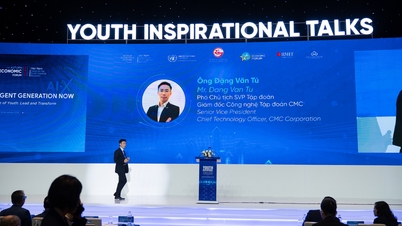

























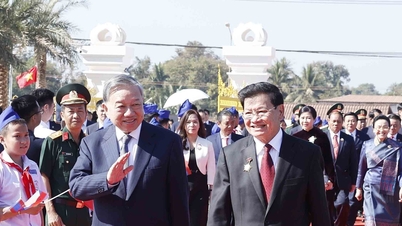
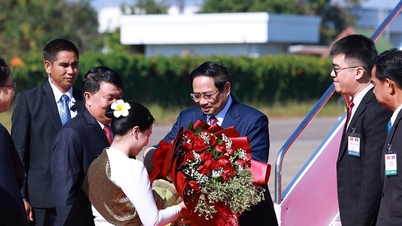
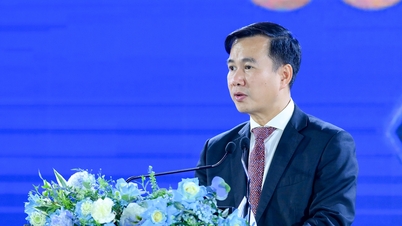
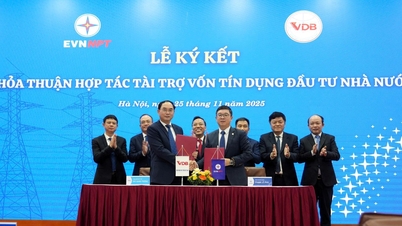






































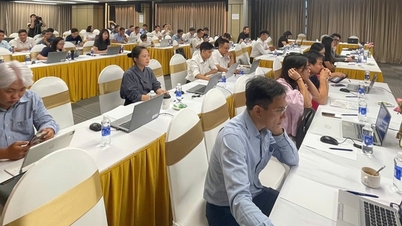

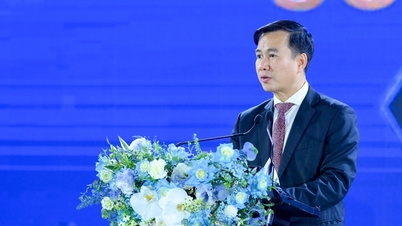
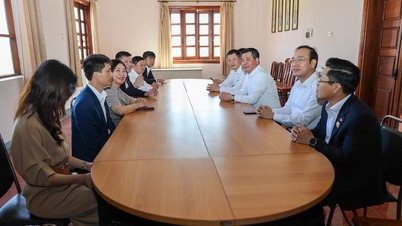

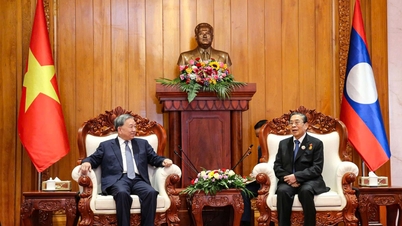

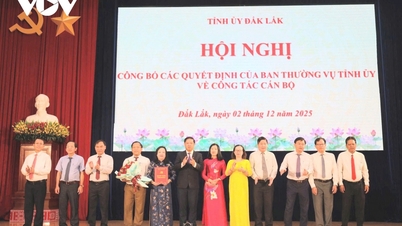

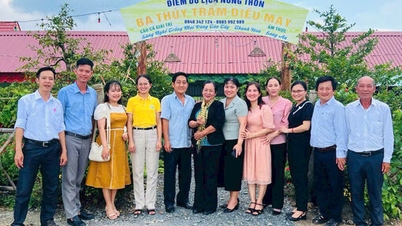
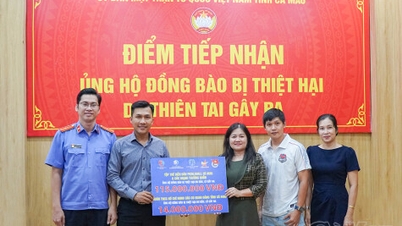







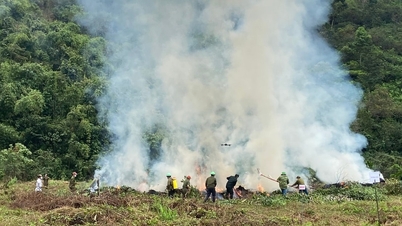













Comment (0)